- Home
- Harry Harrison
Stars and Stripes Forever sas-1 Page 6
Stars and Stripes Forever sas-1 Read online
Page 6
“Judah — do you know why I had you appointed to replace LeRoy Walker?”
Judah P. Benjamin took the question to be a rhetorical one so he simply smiled in response and waited patiently for the answer, his folded hands resting lightly on his ample waistline.
“LeRoy is an excellent man and a hard worker. But he made too many enemies in government. I think he had to spend more time fighting them than he did fighting the Yankees. Here.” Davis pushed the file across the desk. “Address yourself to these and see if the new Secretary of War can come up with some new answers. That’s why you have the job. You are a patient man, Judah, an elder statesman who has many friends. You can stop the bickering and see that everyone in harness pulls in the same direction. When you look at these reports you will see that we are short of everything — but mostly short of guns and powder. If we were not a rural nation we would be in a dreadful pickle. As it is almost every volunteer brings along his own gun when he joins up. But it is more than muskets that we need. We must find cannon — and gunpowder — if we are going to win this war.”
“It is my understanding, Mr. President, that a quantity of supplies was captured after the battle of Ball’s Bluff.”
“Indeed. It was a great victory and the bluebellies threw their guns away when they retreated. Our first victory since Bull Run. That helped — but not for long. There are also reports of Yankee foraging parties being captured, all good — but still not good enough. We can’t expect the North to be our sole source of supplies. The military front is very static for the moment and we must take advantage of this lull in the fighting. McClellan’s Yankee armies are being held at bay, but we can certainly look forward to some action there in the peninsula in the spring. But it is the naval blockade that is hurting us, hurting real bad. That is why we have been diverting all our resources to readying the ironclad Virginia for battle. When she sails our prayers go with her to break the blockade and sink the Northern fleet. When that happens we can bring in supplies by the boatload. Our cotton is eagerly sought in Britain and the funds from that will buy the gunpowder, cannon and supplies that we so desperately need.”
Benjamin had been leafing slowly through the file while the President talked. He pulled out a handful of newspaper clippings.
“They’re from the North,” Jefferson Davis said. “They are crowing like cockerels up there, all puffed with victory, over the imprisonment of Mason and Slidell. Let them gloat. I’m beginning to feel that this may all be a blessing in disguise. I do declare that those two Southern gentleman are doing more for the Confederacy sitting in that Yankee prison then they ever could have done in Europe. The British are all het up at this violation of their territory. I believe that every shipyard over there is building a blockade runner or a raider for us. And the wonderful part is that the Yankees did this to themselves. Nothing that we might have done could have been of greater aid to our cause.”
“I agree Mr. President, agree strongly. Our ambassadors to Boston are doing wonderfully fine there. Let us thank the Lord and pray to Him that they remain in that prison while the British get themselves more and more irritated. They should be congratulated on their sagacity in being captured by the Yankees.”
Lord Palmerston was seated in the wingchair before the glowing coal fire, his right leg extended and resting on a mound of cushions. His eyes were closed and ringed with lines of pain. He opened them slowly when the butler announced Lord John Russell.
“Ah, John, do come in. Pour yourself a port — and one for me if you please. A large one if you would be so kind.”
He sipped and smacked his lips with pleasure, then grimaced and pointed to his supported foot.
“Gout. Infernal bloody nuisance. Hurts like the very blazes of hell. Quacks can’t do a thing about it. I drink their foul nostrums and nothing improves in the slightest. They try to blame the port for the condition, simpering nonces. Port’s the only thing that seems to help in the slightest. But enough of that. Of greater importance. You must tell me. How did it go at the palace?”
“Wonderfully. Her Majesty agreed that we should make all preparations to increase the pressure on the Americans — even before they have had a chance to respond to our ultimatum. Prince Albert is doing very poorly, I regret to report. The physicians now are sure that his lung congestion is far more serious than they had previously determined. They believe that he has all the symptoms of the typhoid fever.”
“I say! But he has not been in the south, has not left London.”
“He doesn’t need to. You’ve smelled the drains in Windsor Castle. Mephitic! Anything could lurk in their bowels. Nothing has ever been done to improve the various closets and sinks there. Noxious effluvia escape from the old drain — the stench of the cesspools make parts of the Castle almost uninhabitable. I am surprised that more are not felled by the miasma.”
“Poor Albert, poor man.”
“If there is any good to come of his illness it is the Queen’s anger. She feels that, in his weakened condition, he should not have attempted to work on our dispatch. She is positive that he gave his strength for his country, and she fears he may perhaps, terrible thought, even give his life. She blames the Americans for everything, everything. No action we take will be too severe.”
“Such a fine woman — and a veritable dragon in defense of St. George. So what shall we do first?”
“First we demonstrate to the Yankees the firmness of our will.”
“Which is indeed of the firmest.”
“We reconsider our neutrality in supplying military supplies to both antagonists in this conflict. We can order an embargo on all shipments of saltpeter to the North — the vital ingredient of gunpowder.”
“A fine beginning. And if we do that we must also forbid shipment of munitions and all other warlike instruments. We shall hit them where it hurts.”
“And we must prepare ourselves to show our warlike mettle as well. Two troop vessels have sailed for Canada this very day. Quite a spirited departure I am told with the bands playing ‘The British Grenadiers’ followed by ‘Dixie.’ But there has been another slight hold up. You will recall that we have another regiment and an artillery battery that were to be transferred to Canada.”
“I do,” Palmerston said, frowning. “But I assumed they were seaborne or in the province by now.”
“They are still in barracks. The Canadians say they have no quarters or tents for them…”
“Nonsense! These are hardened troops capable of living and fighting in any extremity. Have the orders issued for their transferral at once. And I suggest that we don’t wait for the navy and their transports. I can hear their delaying arguments already. Hire a Cunard steamer. What is the strength of our forces in Canada?”
“I am afraid that we have only five thousand regulars stationed there at the present time.”
“That must change. By God we should have finished the colonials off in 1814. We had the strength to do it. Burnt their cities of Buffalo and Washington as well, didn’t we? Would have won if it hadn’t been for the French. Well, spilt milk and all that. How about our situation now at sea? What is the condition of our fleet at the North American station?”
“Quite adequate, well over thirty vessels. There are three battleships, as well as frigates and corvettes.”
“Good, but not good enough. They must be reinforced with more capital ships. The Americans must see that we are very serious in this matter. The two Southern representatives must be returned, an apology must be made. On this we are adamant. With the country united behind us we can not be seen to be weak or pusillanimous. What is today’s date?”
“The twenty-first of December.”
“The very day that Lord Lyons is to present our dispatch to the Americans. I am sure that it was a singularly momentous occasion. Now, some more port, if you please.”
Lord Lyons hated the Washington weather. Tropically hot and humid in summer, arctic in winter. His carriage had bumped and slithered over the ice and s
lush, shaking him about like a pea in a pod. Finally back at his home he descended from the carriage and tramped through the wet snow, slammed the front door behind him. His manservant took his snow-whitened coat and opened the door to the study where a fire crackled on the hearth.
“William,” Lyons called out as he warmed his hands before the flames. His secretary slipped in silently. “Bring pen, ink and paper for yourself. I have met with the Americans and must write a report at once to Lord Palmerston. It has been a dreadful morning. That Seward is a cold fish indeed. He read our dispatch without moving a muscle at the demands and commands it contained. Even managed to look bored when I told him we must have an answer within a week. If our demands are not met, I assured him that I would remove my passports and return to Britain. He smiled at that — as though he enjoyed the idea!”
His secretary nodded understandingly, knowing that he was but a witness not a participant in the conversation.
Lyons walked back and forth before the fireplace, composing his words carefully. He was a small and plump man, with a smoothness of manner that hid the subtlety of his nature. William sat in silence, quill pen poised over paper.
“Usual honorifics, you know. Then — I have this day handed over to Secretary of State Seward your demands for the release of the Confederate commissioners Messrs Mason and Slidell. I am convinced that unless we give our friends here a good lesson this time, we shall have the same trouble with them again very soon. They will soon see the folly of their ways when they read this ultimatum. Surrender or war will have a very salutary effect upon them. Though I must say that our demands were met with a very cool reception.”
The fire crackled; the only other sound the scratch of the pen on paper. Lyons warmed his hands, aware of a sudden chill. Would there be war? Would it come to that in the end?
It was an exhilarating albeit a most depressing thought. War against aborigines was one thing. Against an armed and dangerous foe was another. But this was a country divided and the Union was already battling for its life. While Britain, at peace with the rest of the world, could draw upon the mighty strength of her Empire if it came to battle. The richest Empire the world had ever seen. America had managed to slip from the British grasp — but that could be rectified. There was a continent brimming with wealth here that would only add greater luster to the Empire.
Perhaps a war would not be such a bad idea after all.
ON THE BRINK
Dr. Jenner closed the door to Prince Albert’s bedroom as quietly as he could, turning the handle as he shut it so there would not be the slightest click of metal on metal. Queen Victoria watched him, eyes wide with fright and apprehension; the flame on the candlestick in her trembling hand wavered and smoked.
“Tell me…” she said, almost breathlessly.
“Sleeping,” the doctor said. “A very good sign.”
“It is, of course!” Victoria felt the slightest lift of spirits. “It has been, I don’t know how long, days, nights since he has slept a little, or not at all.”
“Nor you either, for that matter.”
She dismissed this with a disdainful wave of her small and chubby hand. “I am not ill, he is the one whom you and Sir James must be concerned about. I have been sleeping on that makeshift bed in his dressing room. But he walks about, does not lie down — and he is so thin. Some nights I do not believe he sleeps at all. Nor does he eat! It tears at my heart to see him like this.”
“His gastric fever must run its course so we must be patient. You can be of immense help by doing what no one else can do. You must see that he eats something every day. Even if only gruel, his body must need all the help to fight this disease.” Jenner took the candle from her trembling hand and placed it on the table next to the couch. “You had best sit, ma’am.”
Victoria sat as bid, spreading her skirts wide. Trying to fold her hands steady on her lap, but kneading them ceaselessly instead.
“I saw Lord Palmerston today,” Jenner said. “He was most concerned about the Prince’s health and had what I consider to be a most worthwhile suggestion. I am of course most qualified, but I see no reason that other physicians might — ”
“He has talked to me too. You need not go on.”
“But his suggestion may be a wise one. I would certainly not take umbrage if another physician, or even more, were consulted.”
“No. I do not like Palmerston’s interference. You are my dear husband’s doctor and so you shall remain. This hasty feverish sort of influenza and deranged stomach will soon pass as it has done so before. At least he is resting now, sleeping.”
“The best medicine in the world for him in his condition…”
As if to deny his words the candle flame guttered as the door to the bedroom opened. Albert stood there in his dressing gown, clutching the fabric to his chest, his pale skin stretched taut across his cheekbones.
“I awoke — ” he said weakly, then coughed, a racking cough that shook his frail body.
Jenner sprang to his feet. “You must return to your bed — this is most imperative. The chill of the night alone!”
“Why?” Albert asked in tones of deepest despair. “I know how ill I am. I know this fever, an old enemy — and knowing it I know that I shall not ever recover.”
“Never!” Victoria cried. “Come dearest, come to bed. I shall read to you until you fall asleep.”
Albert was too weak to protest, merely shaking his head with Teutonic despair. Leaning on her arm he shuffled across the room. He was not wearing his slippers, but the long underwear he insisted on using had fabric feet sewed to them, offering some protection against the cold. Dr. Jenner lit the bedside lamp as Victoria saw her husband back to bed. Carefully walking backward, Dr. Jenner bowed and left.
“You will sleep now,” she said.
“I cannot.”
“Then I will read to you. Your favorite, Walter Scott.”
“Some other time. Tell me — is there still talk of war with the Americans?”
“You must not disturb yourself with politics. Let others concern themselves now with affairs of state.”
“I should have done more. That ultimatum should not have been sent.”
“Hush, my dearest. If I cannot read to you from Scott — why then you have always been fond of the writings of von Ense.”
Albert nodded agreement and she fetched the book from the shelf. The memoirs of Varnhagen von Ense, the famous soldier and diplomat, indeed was his favorite. And hearing her read in German seemed to soothe him somewhat. After some time his breathing steadied and she saw that he was asleep. Lowering the lamp she found her way by the light of the flickering fire, in the grate to his dressing room, and to her improvised bed.
The next day was December eleventh and the coldest day of this coldest month on record. England and London were in the grip of the deepest of deep frosts. Here, in this stone castle, if possible the chill and dank corridors of Windsor Palace were colder than ever before. The servants stoked the many fires, yet still the cold prevailed.
At noon Albert was still in his bed, still asleep. Victoria’s daughter, Alice, was at her side when Dr. Jenner came to examine his patient.
“He is sleeping well, isn’t he?” the Queen asked with some apprehension. “This is a change for the better?”
The doctor nodded, but did not speak. He touched his hand to his patient’s forehead before taking his pulse.
“This is a turning point,” Jenner said with an inadvertent air of deepest gloom. “But he is very weak you must remember — ”
“What are you saying? Are you giving up hope?”
The doctor’s silence was answer enough.
Victoria no longer protested at additional medical support. There were other doctors in attendance now, five specialists who aided Jenner, who spoke to each other in murmured whispers that the Queen could not hear. When she became upset Alice led her gently from the room, sent for tea.
For two days the Prince lay very still, his face a
shen, his breathing labored. Victoria never left his side, holding his pale hand with its weakening pulse. In mid-afternoon of the second day clouds broke and a ray of golden sunlight illuminated the room, touching his face with a sheen of color. His eyes opened and he looked up at her.
“The Trent Affair…” he whispered, but could not go on. Victoria wept silently, clasping his cold and limp hand.
At sunset the children were brought in to see their father. Beatrice was too young to be allowed to attend this depressing scene, but Lenchen, Louise, Alice and Arthur were all there. Even Bertie came by train from Cambridge for a final visit to his father. Unhappily Alfie and Leopold were traveling abroad and could not be reached. Vickie, pregnant again, could not make the exhausting trip from Berlin. Still, four of their children were present in the sick room, clutching hands, trying to fathom what was happening to their father. Even Bertie, always at odds with his father, was silent now.
The following morning, in bright sunlight, a military band playing faintly in the distance, Albert sank into a final coma, Victoria still at his side. His eyes were open now, but he did not move or speak. Her vigil lasted all of that day and into evening and night.
At a little before eleven o’clock he drew several long breaths. Victoria clutched at his hand as his breathing ceased.
“Oh! My dear darling!” she cried aloud as she dropped to her knees in distracted despair. “My Angel has gone to rest with the angels.”
She leaned over to kiss his cold forehead one last time. And unbidden the last words he had spoken sprang poisonously to her mind.
“The Trent Affair. Those Americans did this. They have killed my love.”
She screamed aloud, tore at her clothing, screamed again and again and again.
Across the Atlantic the winter was just as bad as that in England. There were thick sheets of ice in the river water that were struck aside by the ferry boat’s bow, to thud and hammer down her sides. It was a slow passage from the island of Manhattan. When the ship finally tied up in its slip on the Brooklyn shore of the East River, the two men quickly went from the ferry and hurried to the first carriage in the row of waiting cabs.

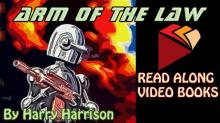 Arm of the Law
Arm of the Law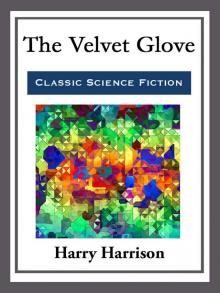 The Velvet Glove
The Velvet Glove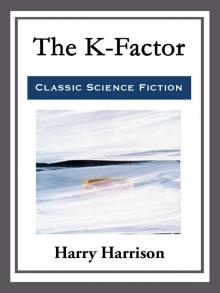 The K-Factor
The K-Factor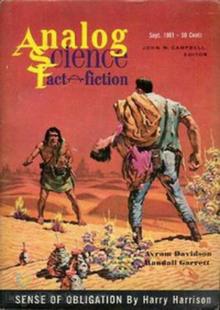 Sense of Obligation
Sense of Obligation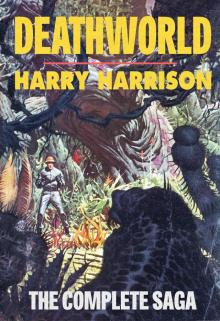 Deathworld: The Complete Saga
Deathworld: The Complete Saga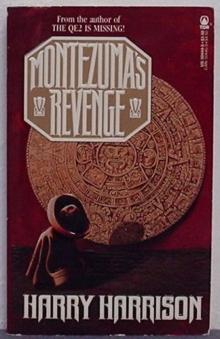 Montezuma's Revenge
Montezuma's Revenge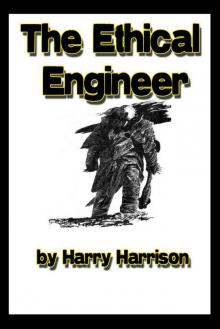 The Ethical Engineer
The Ethical Engineer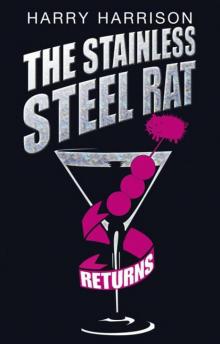 The Stainless Steel Rat Returns
The Stainless Steel Rat Returns The Misplaced Battleship
The Misplaced Battleship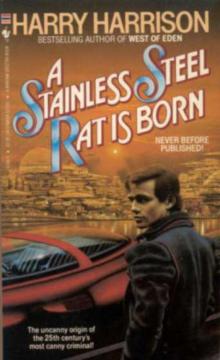 The Stainless Steel Rat is Born
The Stainless Steel Rat is Born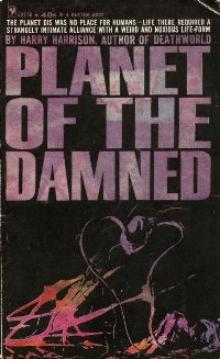 Planet of the Damned bb-1
Planet of the Damned bb-1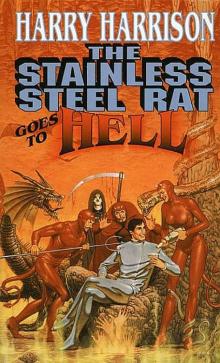 The Stainless Steel Rat Goes to Hell ssr-10
The Stainless Steel Rat Goes to Hell ssr-10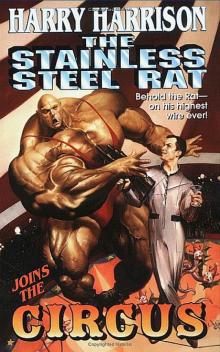 The Stainless Steel Rat Joins the Circus ssr-11
The Stainless Steel Rat Joins the Circus ssr-11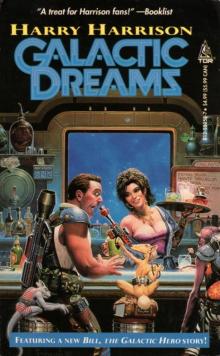 Galactic Dreams
Galactic Dreams The Harry Harrison Megapack
The Harry Harrison Megapack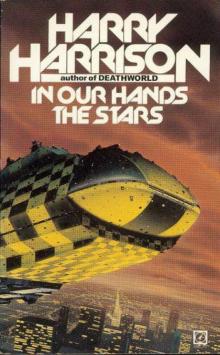 In Our Hands the Stars
In Our Hands the Stars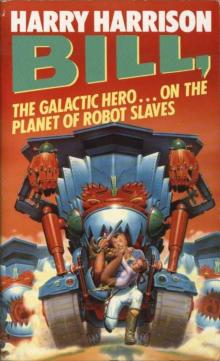 On the Planet of Robot Slaves
On the Planet of Robot Slaves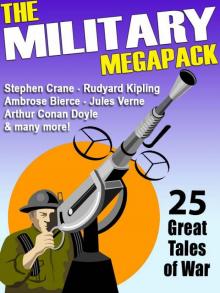 The Military Megapack
The Military Megapack Make Room! Make Room!
Make Room! Make Room!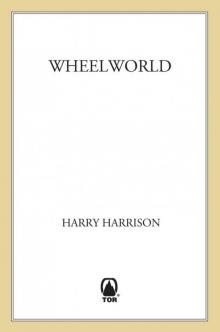 Wheelworld
Wheelworld Winter in Eden e-2
Winter in Eden e-2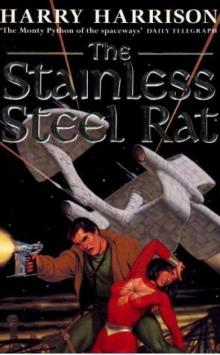 The Stainless Steel Rat
The Stainless Steel Rat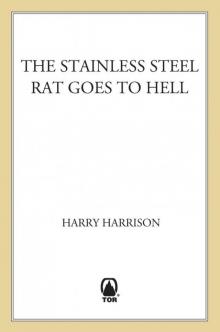 The Stainless Steel Rat Goes to Hell
The Stainless Steel Rat Goes to Hell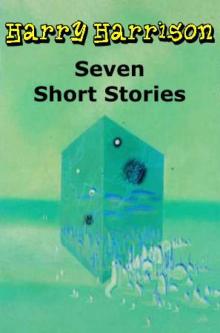 Harry Harrison Short Stoies
Harry Harrison Short Stoies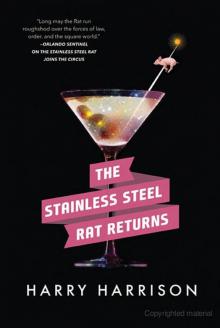 Stainless Steel Rat 11: The Stainless Steel Rat Returns
Stainless Steel Rat 11: The Stainless Steel Rat Returns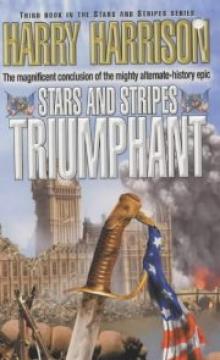 Stars and Stripes Triumphant sas-3
Stars and Stripes Triumphant sas-3 West of Eden
West of Eden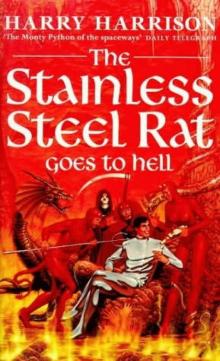 The Stainless Steel Rat Go's To Hell
The Stainless Steel Rat Go's To Hell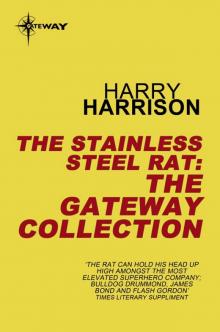 The Stainless Steel Rat eBook Collection
The Stainless Steel Rat eBook Collection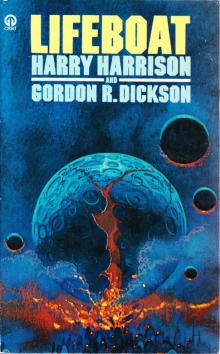 Lifeboat
Lifeboat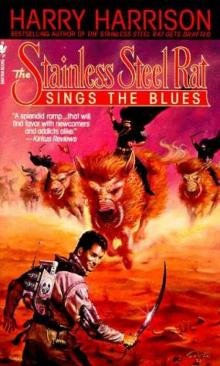 The Stainless Steel Rat Sings the Blues
The Stainless Steel Rat Sings the Blues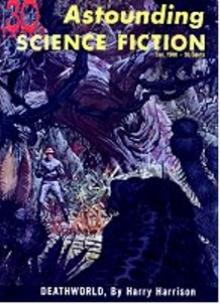 Deathworld tds-1
Deathworld tds-1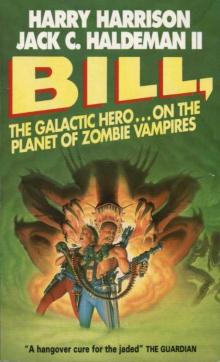 On the Planet of Zombie Vampires
On the Planet of Zombie Vampires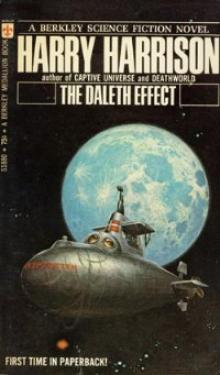 The Daleth Effect
The Daleth Effect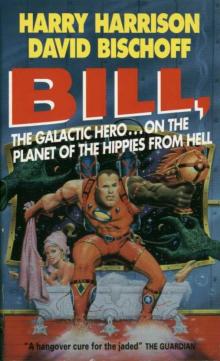 On The Planet Of The Hippies From Hell
On The Planet Of The Hippies From Hell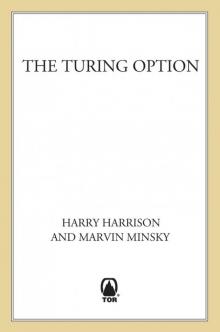 The Turing Option
The Turing Option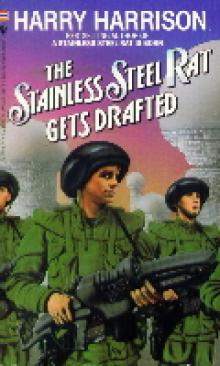 The Stainless Steel Rat Gets Drafted
The Stainless Steel Rat Gets Drafted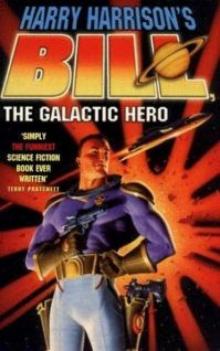 Bill, the Galactic Hero btgh-1
Bill, the Galactic Hero btgh-1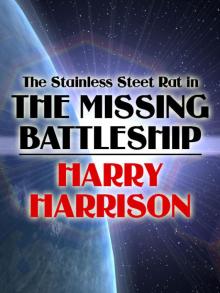 The Stainless Steel Rat in The Missing Battleship
The Stainless Steel Rat in The Missing Battleship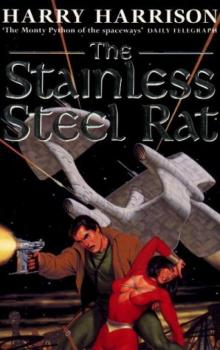 The Stainless Steel Rat ssr-1
The Stainless Steel Rat ssr-1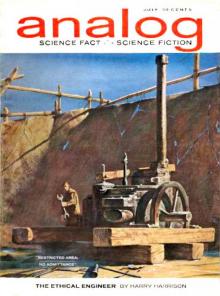 The Ethical Engineer (the deathworld series)
The Ethical Engineer (the deathworld series)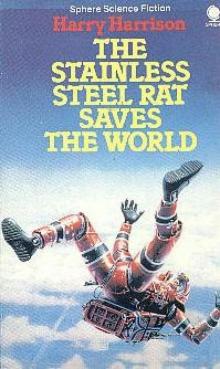 The Stainless Steel Rat Saves the World ssr-3
The Stainless Steel Rat Saves the World ssr-3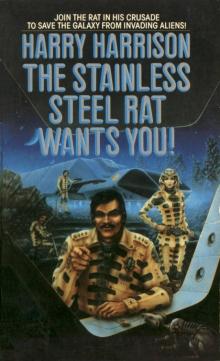 The Stainless Steel Rat Wants You
The Stainless Steel Rat Wants You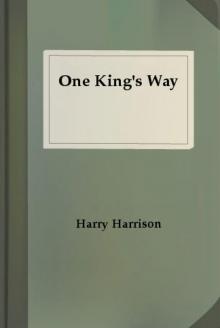 One King's Way thatc-2
One King's Way thatc-2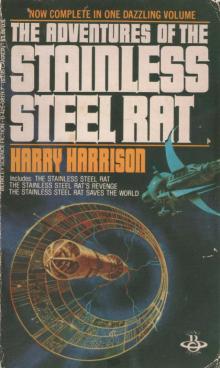 The Stainless Steel Rat Saves The World
The Stainless Steel Rat Saves The World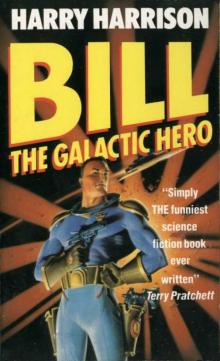 Bill, the Galactic Hero
Bill, the Galactic Hero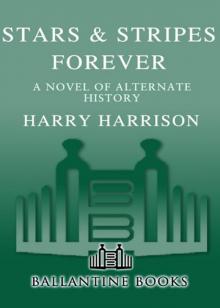 Stars & Stripes Forever
Stars & Stripes Forever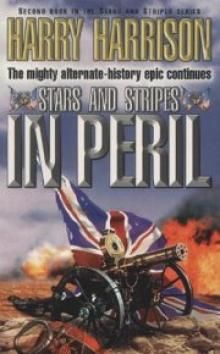 Stars and Stripes In Peril sas-2
Stars and Stripes In Peril sas-2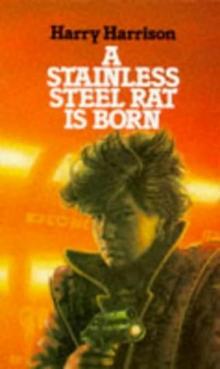 A Stainless Steel Rat Is Born ssr-6
A Stainless Steel Rat Is Born ssr-6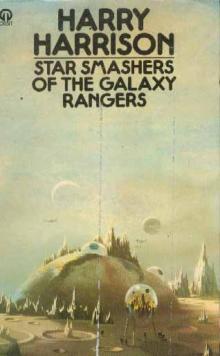 Star Smashers of the Galaxy Rangers
Star Smashers of the Galaxy Rangers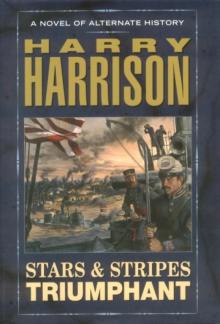 Stars & Stripes Triumphant
Stars & Stripes Triumphant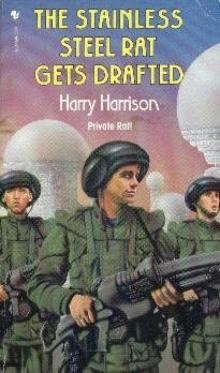 The Stainless Steel Rat Gets Drafted ssr-7
The Stainless Steel Rat Gets Drafted ssr-7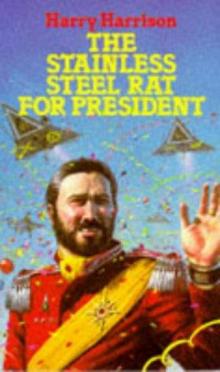 The Stainless Steel Rat for President ssr-5
The Stainless Steel Rat for President ssr-5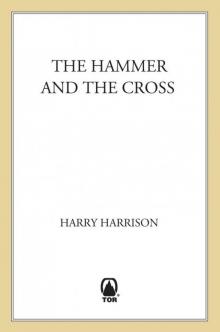 The Hammer & the Cross
The Hammer & the Cross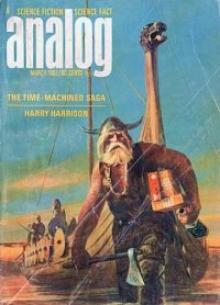 The Technicolor Time Machine
The Technicolor Time Machine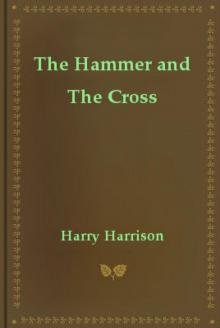 The Hammer and The Cross thatc-1
The Hammer and The Cross thatc-1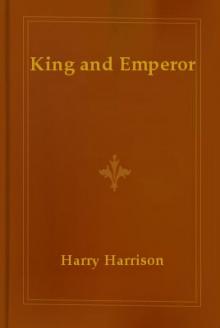 King and Emperor thatc-3
King and Emperor thatc-3 Return to Eden
Return to Eden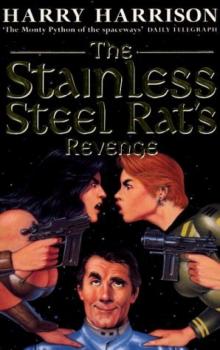 The Stainless Steel Rat’s Revenge ssr-2
The Stainless Steel Rat’s Revenge ssr-2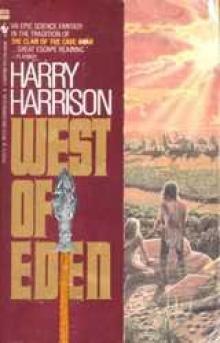 West of Eden e-1
West of Eden e-1 Return to Eden e-3
Return to Eden e-3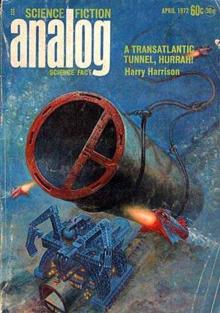 A Transatlantic Tunnel, Hurrah!
A Transatlantic Tunnel, Hurrah!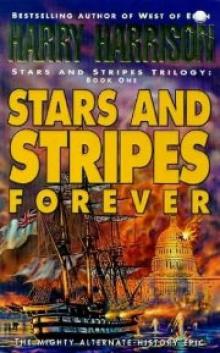 Stars and Stripes Forever sas-1
Stars and Stripes Forever sas-1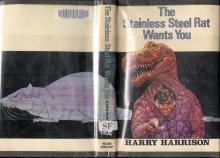 The Stainless Steel Rat Wants You ssr-4
The Stainless Steel Rat Wants You ssr-4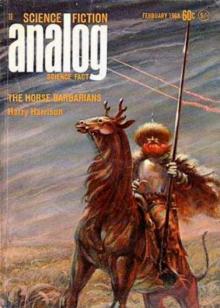 The Horse Barbarians tds-3
The Horse Barbarians tds-3 Planet of the Damned and Other Stories: A Science Fiction Anthology (Five Books in One Volume!)
Planet of the Damned and Other Stories: A Science Fiction Anthology (Five Books in One Volume!)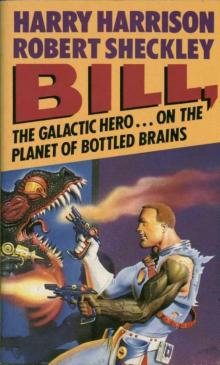 On the Planet of Bottled Brains
On the Planet of Bottled Brains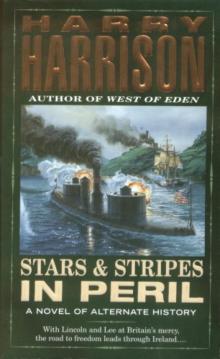 Stars And Stripes In Peril
Stars And Stripes In Peril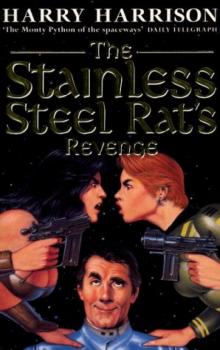 The Stainless Steel Rat's Revenge
The Stainless Steel Rat's Revenge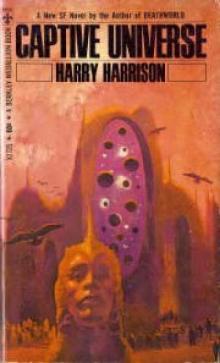 Captive Universe
Captive Universe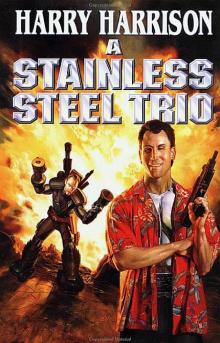 The Stainless Steell Rat Sings the Blues ssr-8
The Stainless Steell Rat Sings the Blues ssr-8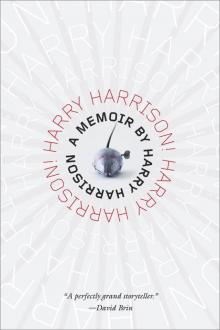 Harry Harrison! Harry Harrison!
Harry Harrison! Harry Harrison! Winter in Eden
Winter in Eden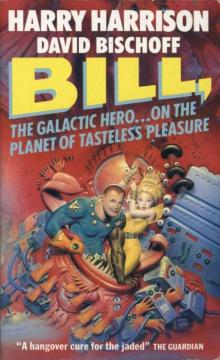 On the Planet of Tasteless Pleasures
On the Planet of Tasteless Pleasures